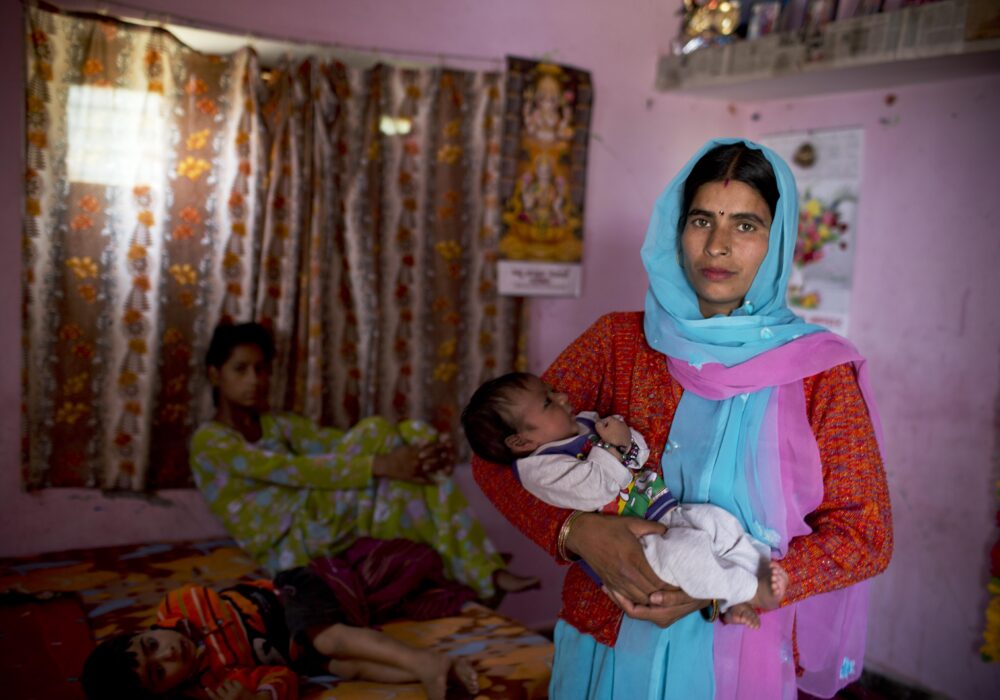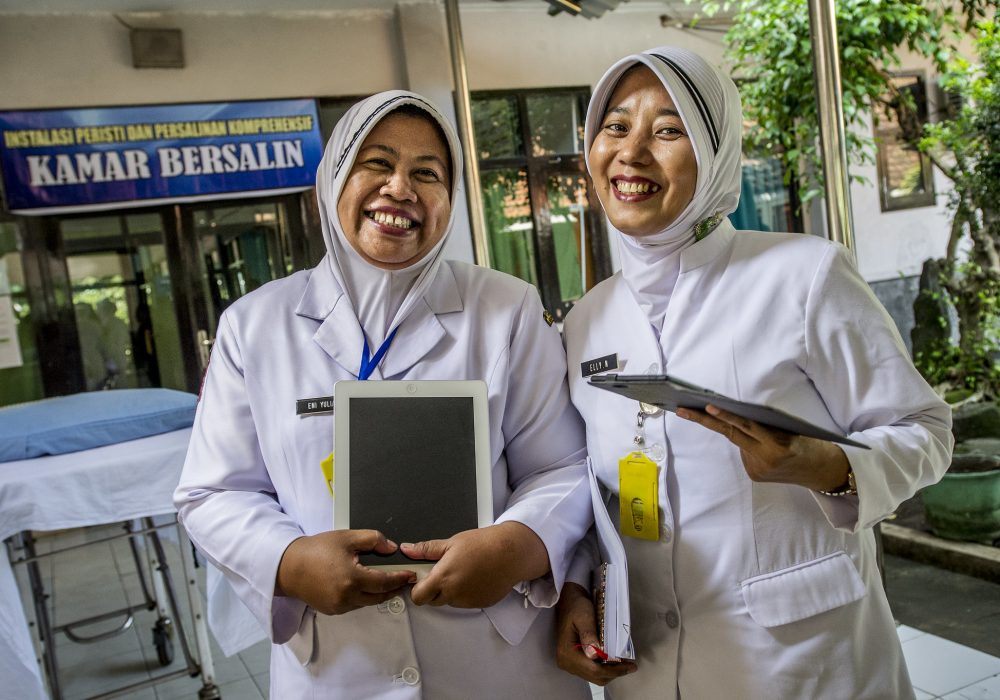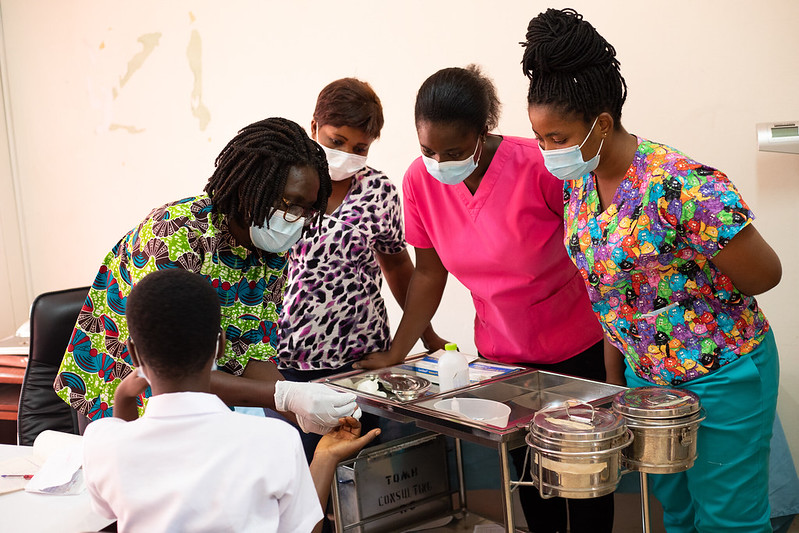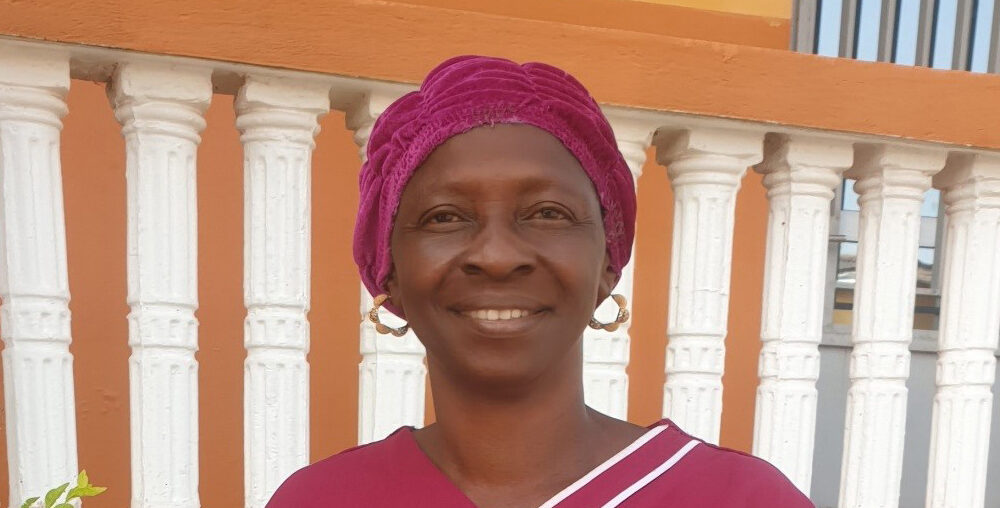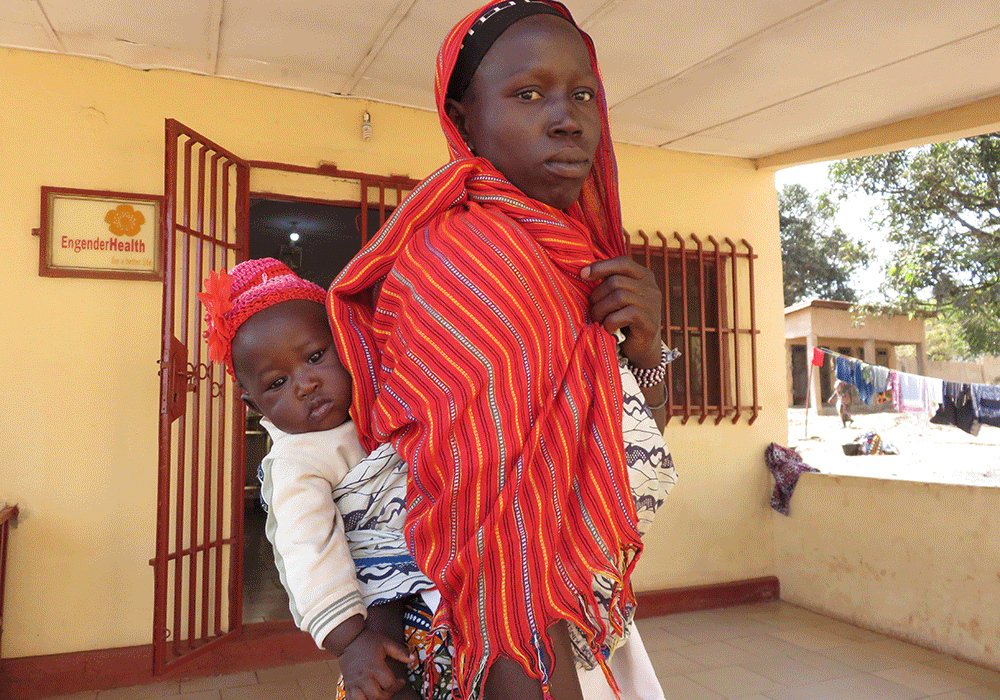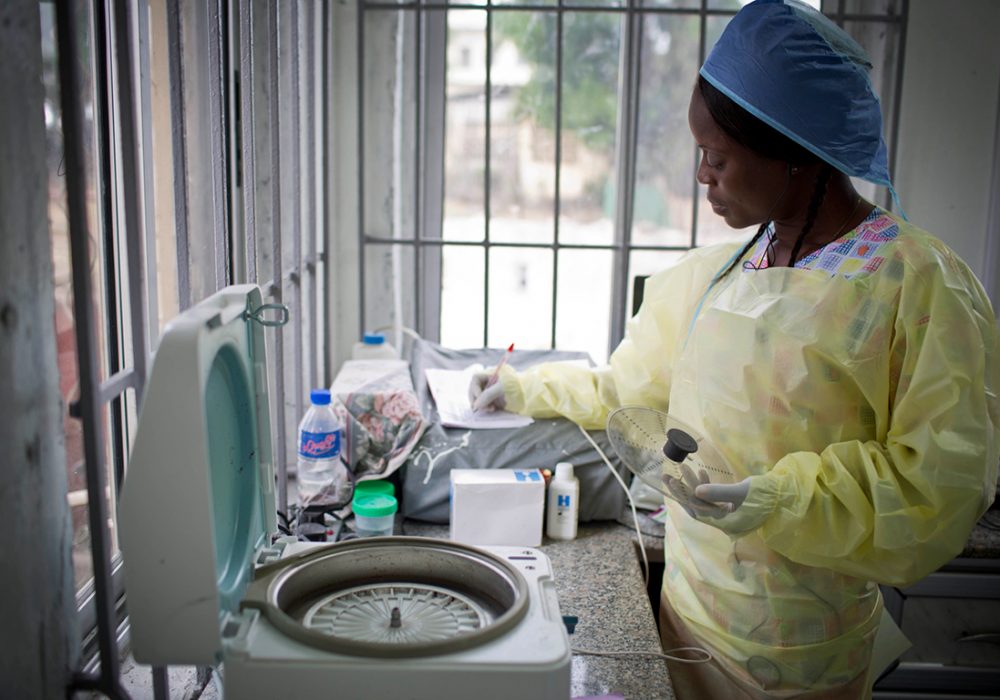Guinea


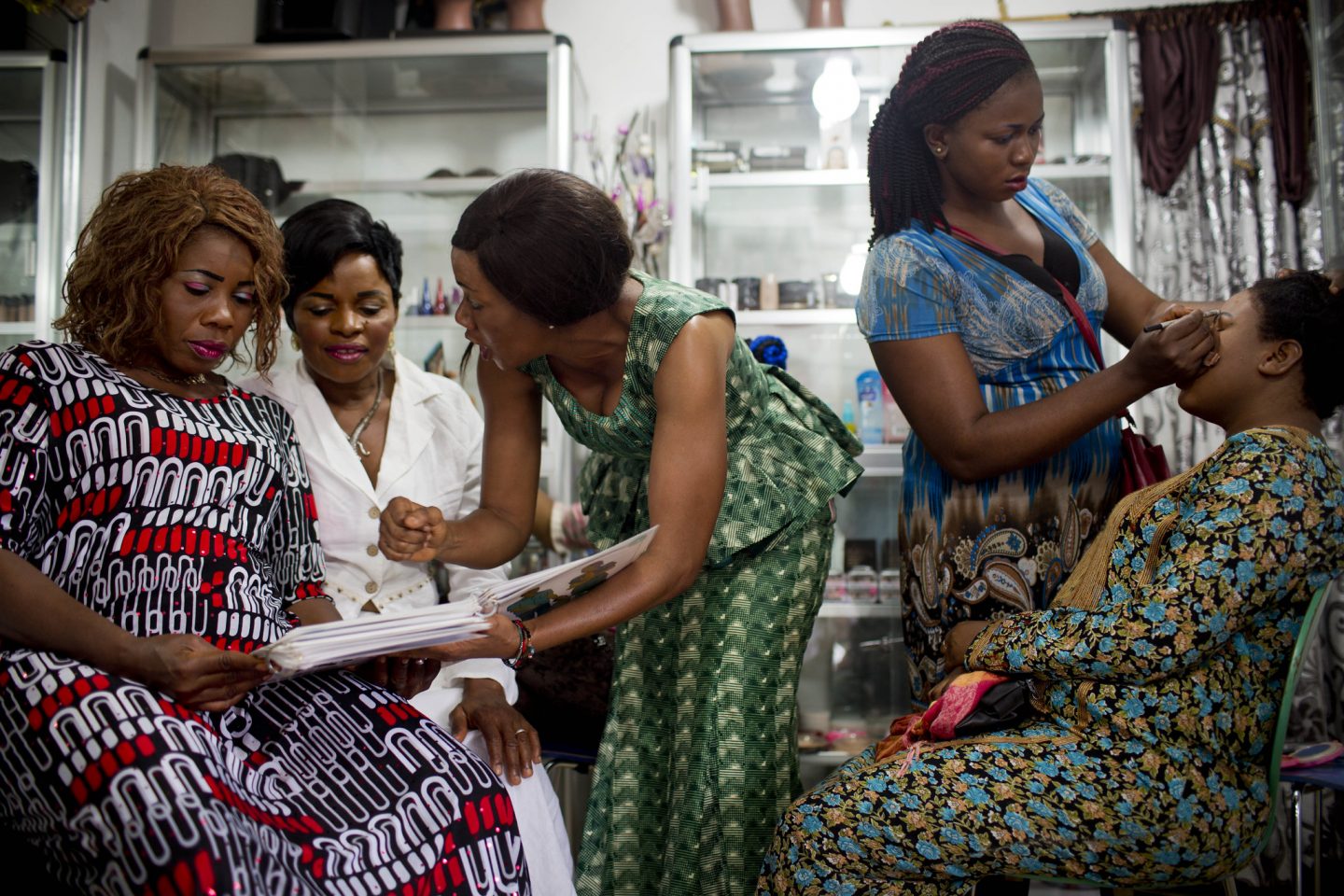
Country Contact
Yolande Hyjazi, Country Director
Tel. 224 664 233 661
Immeuble Guinomar, 5ème étage
Quartier Camayenne
Commune de Dixinn
Conakry, Guinea
Current and Recent Donors
Advance Family Planning
Bill & Melinda Gates Foundation
CDC
Clinton Health Access Initiative–Catalytic Opportunity Funds
Global Fund to Fight AIDS, Tuberculosis and Malaria
UNFPA
Unitaid
USAID
World Health Organization
Since 1993, improving health, saving lives and responding to disease outbreaks.
- At Jhpiego-supported health care facilities, more than 426,000 deliveries were attended by a skilled birth attendant and more than 9 million women started using a modern family planning (FP) method for the first time.
- The Health Service Delivery (HSD) project assisted Guinea’s Ministry of Health to define an integrated package of essential services and helped increase the number of facilities offering the full package from 79 in 2017 to 261 in 2022 (94% of project target).
- To date, HSD has trained 117 providers, 143 community educators 30 paralegals and 50 protection officers in gender-based violence (GBV) services, including clinical management, referral and reporting, educational messages for prevention and awareness building of community resources. In the three years that HSD has supported GBV activities, more than 1600 cases have been managed at 56 project-supported facilities for this intervention.
- Jhpiego supported COVID-19 vaccination in two regions, Boke and Kindia. Through support to organize and mobilize teams of vaccinators and ensure waste management, more than 2.3 million doses have been administered, with 1.04 million fully vaccinated with two doses or a single dose product. As a result, second dose coverage in these regions is 55% and 46%, respectively, of target—well exceeding the national average of 25%.

Our Technical Areas in Guinea
Our Work in Guinea
Accelerating Measurable Progress and Leveraging Investments for Postpartum Hemorrhage Impact (AMPLI-PPHI)
This multi-country project is catalyzing the introduction and adoption pathways for quality-assured drugs to treat postpartum hemorrhage (i.e., heat-stable carbetocin, tranexamic acid and misoprostol) through engagement and coordination with country governments and key stakeholders. The project aims to reduce maternal mortality and morbidity by making sure the right drug is in the right place at the right time for the right indication. Funded by Unitaid, AMPLI-PPHI is led by Jhpiego and supported by consortium partners PATH and the International Federation of Gynaecology and Obstetrics (FIGO). In addition to operating in four target countries (the Democratic Republic of Congo, Guinea, Kenya and India), an additional 13 other influence countries are benefitting from country and learning exchanges as well as from the sharing of project learning, resources and tools. For more information, please visit the project website.
Prevention of Mother-to-Child Transmission of HIV
With funding from the Global Fund to Fight Against HIV, Tuberculosis and Malaria through the Ministry of Health in Guinea, Jhpiego is leading efforts to strengthen services for the prevention of mother-to-child transmission of HIV (PMTCT) for women and newborns. Anticipated project results include:
- Extend personalized support to high-burden PMTCT health sites from 106 to 166 to ensure quality of PMTCT services, and support community mediators to encourage increased antenatal care visits
- Reinforce early infant diagnosis by training health service providers and support testing and transmission of test results to new mothers
- Strengthen a coaching approach to improve delivery of quality HIV and PMTCT services, including laboratory and commodity management
- Ensure access to family planning services, a pillar of PMTCT, for all HIV-positive women
- Support discussion groups to encourage adherence to treatment, reduce attrition and increase the number of partners and siblings screened
- Ensure screening and management of precancerous cervical lesions in HIV-positive women
Hormonal IUD Scale-Up Project
This project, funded by the Clinton Health Access Initiative through the Catalytic Opportunity Fund, supports the Guinean Ministry of Health’s efforts to expand contraceptive method choice through the introduction and scale-up of the hormonal IUD. To support initiation and provision of hormonal IUD services at 60 high-volume health facilities that provide long-acting, reversible contraception, Jhpiego is developing the capacities of health care providers by updating national training materials, training 36 national and regional trainers, and conducting provider training and supportive supervision. Jhpiego is also collaborating with the Ministry of Health to support demand generation for hormonal IUDs.
Institutionalization of the DMPA-SC in Eight Ouagadougou Partnership Countries
This project aims to coordinate and support the government of Guinea in implementing their plans to scale up and institutionalize subcutaneous depot-medroxyprogesterone acetate (DMPA-SC), also known as Sayana® Press, in their budgeted national family planning strategic plans, in collaboration with the private sector and other national and regional implementing partners. Funded by the Bill & Melinda Gates Foundation, the project seeks to strengthen the country’s capacity for accelerated and autonomous implementation of the DMPA-SC self-injection scale-up plan in collaboration with the government, and coordinated between the public and private sectors, Access Collaborative partners and other implementing partners by end of project
Country Contact
Yolande Hyjazi, Country Director
Tel. 224 664 233 661
Immeuble Guinomar, 5ème étage
Quartier Camayenne
Commune de Dixinn
Conakry, Guinea
Current and Recent Donors
Advance Family Planning
Bill & Melinda Gates Foundation
CDC
Clinton Health Access Initiative–Catalytic Opportunity Funds
Global Fund to Fight AIDS, Tuberculosis and Malaria
UNFPA
Unitaid
USAID
World Health Organization
